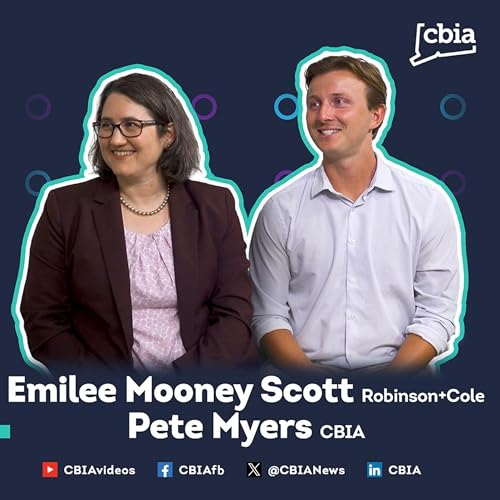As president and CEO of Freeman Companies, Rohan Freeman runs three successful engineering, construction, and real estate firms. He’s also an accomplished mountain climber and the first African-American to climb the Seven Summits—the highest mountain on each of the seven continents. And he’s completed the so-called “explorers grand slam” which includes treks to the North and South Pole. “Sometimes I pinch myself, I feel pretty fortunate to get here and for some of the things I've accomplished,” Freeman told the CBIA BizCast. Freeman grew up in Jamaica, moving to Hartford after high school and graduating from the University of Connecticut with a degree in civil engineering. He said he started his firm in Hartford because it was home and his mother and brother both worked for the city. “I started my firm, and then starting to get more into the fabric of Hartford and the community and understanding some of the major issues that were impacting the city and realized that maybe I could help in some small way,” he said. Since then, the Freeman Companies has been involved in major projects in the city including Dunkin’ Park and a number school, housing, and redevelopment projects. He also founded Seven Summits Construction, which centers on nonprofits, schools, and community based work and Seven Summits Realty, which develops housing to provide access to those less fortunate. “I felt feel so connected to the city, and that's why I also want to give back,” Freman said. “I lived here, my mom lived here. So it's important to me to give back, especially with the way my career has been shaped by the city.” So how does someone who grew up on the island of Jamaica end up becoming a mountain climber? “Good question,” Freeman said. He said winter in Connecticut was a culture shock, but instead of moving somewhere warmer, he decided to embrace it and learn to snowboard. “I'm like, ‘okay, so this is how you enjoy winter,’” he said. “I'm like, ‘okay, I gotta do something else.’ And then my friends got me into ice climbing, and cross-country skiing.” Eventually, one of his friends asked him if he wanted to climb Kilimanjaro. “When I was a kid, we would talk about Kilimanjaro as some mythical place,” he said. "I'm like, 'Yeah, I want to go.'" He said after doing his research and training, they successfully climbed the mountain. And that got him excited for more. “I wanted to replicate that challenge,” Freeman said. “My mind always goes to, ‘am I saying I can't do it because I'm afraid? And also physically, could I accomplish this?’ “So I have to prove those things to myself.” Over the years he achieved the feat of climbing the Seven Summits. “It's knowing that I could break through these barriers,” he said. “Sometimes you find yourself in some really challenging situation where you feel like you have your last ounce of energy to give, but you really have more. “Going through these situations let me know that no matter how bad things are, there's always a little bit more to give.” Freeman said the lessons he’s learned through mountain climbing have helped him as as a leader as he’s grown Freeman Companies. “You may say, ‘physically climbing Denali, climbing Everest doesn't relate professionally,’” he said. “But I would disagree with you." “When we climb, we climb in a rope team,” he said. “So, when we move, we move together.” “It doesn't matter how strong you are as a leader. You cannot move faster than the weakest guy is capable of moving.” Freeman said that it’s the same in business and everybody on the team has equal importance. “You need everybody to be contributing, and so you have to find that balance for your team," he said. Related Links: Freeman Companies Website: https://freemancos.com/ LinkedIn: https://www.linkedin.com/company/freeman-companies-llc/ Rohan Freeman on LinkedIn: https://www.linkedin.com/in/rohanfreeman/ CBIA Website: https://www.cbia.com/ LinkedIn: https://www.linkedin.com/company/cbia/
続きを読む
一部表示
 2025/09/1833 分
2025/09/1833 分 2025/09/0425 分
2025/09/0425 分 2025/08/2124 分
2025/08/2124 分 2025/08/0830 分
2025/08/0830 分 2025/07/2434 分
2025/07/2434 分 2025/07/1029 分
2025/07/1029 分 2025/06/2624 分
2025/06/2624 分 2025/06/1225 分
2025/06/1225 分

